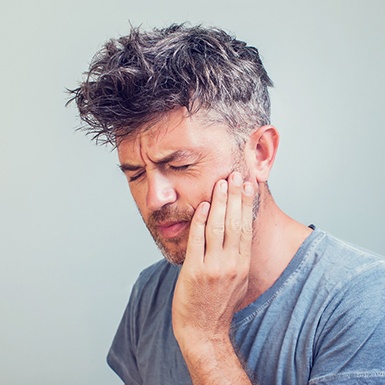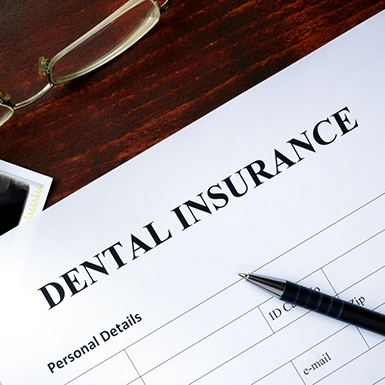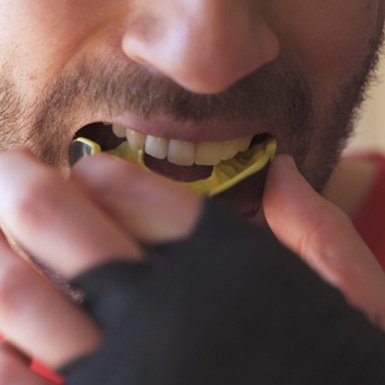Emergency Dentist — Philadelphia, PA
Stop Your Dental Pain
As Soon As Possible
Dental emergencies come in all shapes and sizes. No matter if you have an oral infection that’s causing you constant pain, or a damaged tooth that’s in danger of falling apart, your first step needs to be to get in touch with Dentex Dental of Philadelphia as soon as you can. Between our comfortable, welcoming dental office environment, our advanced technology, and our extremely caring dental team, you can count on us to take care of your urgent dental needs whenever you need our help the most with emergency dentistry in Philadelphia.
Why Choose Dentex Dental of Philadelphia for Emergency Dental Care?
- Same-Day Appointments
- Replacement Options Available
- Evening & Saturday Appointments
What to Do in a Dental Emergency

- Call our office. As soon as you notice something wrong with your mouth, you should give our office a call. We’ll work quickly to get you seen that same day and provide first-aid instructions over the phone to help you manage your situation in the meantime.
- Schedule an emergency exam. Our team will perform a thorough oral examination to determine which treatment method will get your smile back on the right track. We’ll explain your options and start working on your custom treatment plan.
- Get the care you need. Once we’ve identified the root of the problem, we’ll work quickly to address it. Some common solutions for dental emergencies include dental fillings, crowns, root canal therapy, and extraction.
The Most Common Dental Emergencies
A true dental emergency won’t get better without professional treatment, but that doesn’t mean there isn’t anything you can do to improve your situation before you get to our dental office in Philadelphia. If you describe your symptoms and your overall situation to us when you call, we can advise you on managing your pain and stopping the problem from worsening in the meantime. The tips below will help you get a head start in treating some particularly common emergencies.
Understanding the Cost of Emergency Dentistry

It goes without saying that not all dental emergencies are the same. Depending on the nature of your problem and the severity of the damage, the cost of your care could vary quite a bit. Our goal is to restore the health of your smile as quickly and completely as possible, and we’ll recommend the most effective yet cost-efficient treatments to achieve that end. We’ll also discuss your payment options, which may include dental insurance or our in-house plan. Read on to learn more about the cost of emergency dentistry in Bustleton.
Every Dental Emergency is Different

When it comes to the overall cost of your dental emergency, we’ll need to determine the kind of injury that has taken place and the ideal way to address it. You’ll likely expect your payment to be lower if you only require antibiotics or some other prescribed medication. But if you need a more complex procedure, such as a dental crown, root canal, or tooth extraction, then you’ll be looking at paying a higher fee. Since there’s no set price, the best way to get an estimate of the cost of restoring your smile is to schedule an appointment with our team.
Does Dental Insurance Cover Dental Emergencies?

Most dental insurance providers offer coverage for dental emergencies, as they usually involve major restorative treatments. While the exact amount they’ll cover will depend on the procedure itself, you may expect your insurer to help pay at least 50% of the overall cost. However, each plan varies from patient to patient, so it’s best to consult your insurance company about the details of your benefits. Our friendly team is in-network with several well-known insurance plans, and we’ll be more than happy to navigate your policies to help make your treatments more affordable in the long run!
Other Options for Making Dental Emergencies Affordable

Don’t have insurance? You aren’t the only one. Fortunately, we are partnered with a third-party financier known as CareCredit. Their plans can effectively break up the total cost of your dental procedures into smaller monthly installments that come with little to no interest. This means you’ll be able to get the dental care you need without having to break the bank! Feel free to talk with our knowledgeable team if this is something you can benefit from.
Taking Care of Your Smile Can Save You Money

While not every dental emergency is avoidable, there are ways you can lower your risks of experiencing one. Some important preventive measures include practicing proper oral hygiene every day and eliminating poor oral habits, such as smoking, chewing on ice, and using your teeth as tools. You’ll also want to regularly check for any changes in your smile, as even a minor toothache can become a bigger issue in the future. By keeping an eye on your oral health and cleaning your smile routinely, you can save hundreds or thousands of dollars!
Keys to Preventing Dental Emergencies

While our office is prepared to treat a wide variety of dental emergencies, the best thing you can do is take steps to reduce your risk of experiencing them in the first place. Thankfully, this is a relatively simple process when you keep these tips in mind. Take a look and confirm you’re following them closely – you’re far more likely to save a bundle on restorative or emergency dentistry later as a result!
Visit Your Dentist for Regular Checkups

Even though you may not feel any dental issues now, problems like tooth decay and gum disease largely develop in silence (i.e. no symptoms). This means once you start to notice issues, it may already be too late to prevent your dental emergency. For this reason, you’ll want to stay on top of routine dental checkups every six months so we can perform an exam and cleaning. If you have gum disease, you’ll need to visit every three to four months since you carry a higher risk for dental issues.
Maintain Good Brushing and Flossing Habits

If you want to avoid an oral infection, you’ll need to brush at least two times a day with fluoridated toothpaste. Remember that your toothbrush can’t reach every nook and cranny in your mouth, so don’t forget to floss as well. For an extra thorough oral hygiene routine, consider adding an oral rinse to your regimen. Just avoid mouthwashes that contain alcohol as these can cause dry mouth, creating an oral environment that is actually more conducive to cavity production.
Stick to a Healthy Diet

To promote good oral hygiene, avoid eating too many sugary or starchy foods that can accelerate decay. Snacking on these foods throughout the day can be especially harmful as it leaves your teeth and gums exposed to these damaging substances for longer periods of time. Instead, introduce foods into your diet that promote good oral health, including vegetables, fruits, and dairy products. Drink water throughout the day as well to prevent dry mouth and loosen food debris that can get stuck in between teeth.
Wear a Mouthguard to Protect Your Smile

If you play sports of any kind, particularly sports that carry a higher risk for impact, you should get a mouthguard. The most ideal mouthguard to use is one custom-made by a dentist. Not only are these more comfortable to wear, but they last longer and offer the best protection possible. If you have a tendency to grind and clench your teeth at night, a nightguard is the best way to protect your smile from potential chips and cracks.
Break Bad Dental Habits ASAP

To protect your teeth from physical damage, you should never bite down on ice, pen tips, or anything else that’s hard. These objects can easily crack or chip your tooth, resulting in higher dental care costs (i.e. dental crowns and even tooth replacements like dental bridges, dentures and dental implants in severe cases). Additionally, you should discontinue the use of all tobacco products as consuming them can dramatically increase your risk for gum disease and plaque development.
Dental Emergency FAQs
Will my toothache go away on its own?
Pain originating from the gum tissue near a tooth can go away with no treatment, but a toothache won't resolve on its own. Although many things can cause dental pain, an infection is a common culprit. If decay reaches the pulp, the innermost layer of your tooth, it can cause a lot of discomfort. A root canal is the most common treatment; however, if you wait too long, your tooth might need to be removed. Don't try to wait out the pain. If your discomfort subsides, your tooth may have died and you'll require an extraction.
Should I visit the emergency room first for dental emergencies?
Although hospitals are equipped to handle life-threatening issues, they can't treat oral health problems. At most, they can prescribe antibiotics and pain relievers. Unless you have a medical emergency, it's best to see a dentist. If you’re unsure where to go, contact our office to speak with a member of our team.
What does throbbing tooth pain mean?
Nothing is worse than a throbbing toothache. Unfortunately, it's probably caused by an infection in your tooth. When the pulp becomes infected or inflamed, it can cause significant discomfort that won't go away without a root canal. Although they have a bad reputation for being painful, your dentist will use a local numbing agent, so you won’t feel anything during the procedure. However, your tooth may be tender for a couple of days. You don't want to delay having your tooth treated or it may not be salvageable. While you wait for your appointment, eat softer foods and chew on the opposite side of your mouth. Avoid anything hot, cold, acidic, or hard. Take an OTC pain reliever and sleep with your pillow elevated to reduce your discomfort. Applying a cold compress to the outside of your mouth can numb the area temporarily.
My chipped tooth doesn’t hurt. Do I still need to visit?
A chipped tooth is more than an aesthetic concern. Any damage can leave your tooth vulnerable to bacteria, decay, and breaks or fractures. As a result, a chipped tooth is a dental emergency in Philadelphia, even if you aren't in any pain. You can wait a day or two to see your dentist if the chip is minor and isn't causing pain. Your dentist may use dental bonding to fix it. A composite resin is shaded to the color of your enamel to blend in with your tooth structure. It's a quick, minimally invasive procedure that can last for many years with the correct care.
Preventive Dentistry Periodontal (Gum Disease) Therapy Restorative Dentistry Dental Implants Cosmetic Dentistry Orthodontics/Clear Aligners Wisdom Teeth Extractions View Our Services


 (215) 677-2401
(215) 677-2401